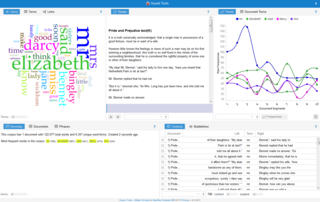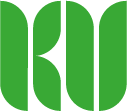Academic publishing is the subfield of publishing which distributes academic research and scholarship. Most academic work is published in academic journal article, book or thesis form. The part of academic written output that is not formally published but merely printed up or posted on the Internet is often called "grey literature". Most scientific and scholarly journals, and many academic and scholarly books, though not all, are based on some form of peer review or editorial refereeing to qualify texts for publication. Peer review quality and selectivity standards vary greatly from journal to journal, publisher to publisher, and field to field.

An academic or scholarly journal is a periodical publication in which scholarship relating to a particular academic discipline is published. Academic journals serve as permanent and transparent forums for the presentation, scrutiny, and discussion of research. They are usually peer-reviewed or refereed. Content typically takes the form of articles presenting original research, review articles, and book reviews. The purpose of an academic journal, according to Henry Oldenburg, is to give researchers a venue to "impart their knowledge to one another, and contribute what they can to the Grand design of improving natural knowledge, and perfecting all Philosophical Arts, and Sciences."

The SSRN, formerly known as Social Science Research Network, is a repository and international journal devoted to the rapid dissemination of scholarly research in the social sciences and humanities and more. In May 2016, SSRN was bought from Social Science Electronic Publishing Inc. by Elsevier.

Digital humanities (DH) is an area of scholarly activity at the intersection of computing or digital technologies and the disciplines of the humanities. It includes the systematic use of digital resources in the humanities, as well as the reflection on their application. DH can be defined as new ways of doing scholarship that involve collaborative, transdisciplinary, and computationally engaged research, teaching, and publishing. It brings digital tools and methods to the study of the humanities with the recognition that the printed word is no longer the main medium for knowledge production and distribution.

Project MUSE, a non-profit collaboration between libraries and publishers, is an online database of peer-reviewed academic journals and electronic books. Project MUSE provides access to digital humanities and social science content from over 250 university presses and scholarly societies around the world. It is an aggregator of digital versions of academic journals and operates as a third-party acquisition service like EBSCO, Elsevier, JSTOR, OverDrive, and ProQuest.

HASTAC is a virtual organization of more than 14,000 individuals and institutions dedicated to innovative new modes of learning and research in higher education, K-12, and lifelong learning. HASTAC network members contribute to the community by sharing work and ideas with others via the open-access website, by hosting HASTAC conferences and workshops online or in their region, by initiating conversations, or by working collaboratively with others in the HASTAC network.

Jean-Claude Guédon is a Quebec-based academic.

Edinburgh University Press is a scholarly publisher of academic books and journals, based in Edinburgh, Scotland.

Frances Pinter is the founder and executive director of Knowledge Unlatched, a not-for-profit company creating a global library consortium enabling sustainable open access academic book publishing. She was also the CEO of Manchester University Press from 2013-2016.
Sustainability science emerged in the 21st century as a new academic discipline. This new field of science was officially introduced with a "Birth Statement" at the World Congress "Challenges of a Changing Earth 2001" in Amsterdam organized by the International Council for Science (ICSU), the International Geosphere-Biosphere Programme (IGBP), the International Human Dimensions Programme on Global Environmental Change and the World Climate Research Programme (WCRP). The field reflects a desire to give the generalities and broad-based approach of “sustainability” a stronger analytic and scientific underpinning as it "brings together scholarship and practice, global and local perspectives from north and south, and disciplines across the natural and social sciences, engineering, and medicine". Ecologist William C. Clark proposes that it can be usefully thought of as "neither 'basic' nor 'applied' research but as a field defined by the problems it addresses rather than by the disciplines it employs" and that it "serves the need for advancing both knowledge and action by creating a dynamic bridge between the two".
Amsterdam University Press (AUP) is a university press that was founded in 1992 by the University of Amsterdam in the Netherlands. It is based on the Anglo-Saxon university press model and operates on a not-for-profit basis. AUP publishes scholarly and trade titles in both Dutch and English, predominantly in the humanities and social sciences and has a publishing list of over 1400 titles. It also publishes multiple scholarly journals according to the open access publishing model. From 2000 until 2013, the AUP published the journal Academische Boekengids with book reviews written by editors from multiple Dutch universities.
Frontiers Media SA is an academic publisher of peer-reviewed open access scientific journals currently active in science, technology, and medicine. It was founded in 2007 by a group of neuroscientists, including Henry and Kamila Markram, and later expanded to other academic fields. Frontiers is based in Lausanne, Switzerland.
The Open Library of Humanities is a non-profit open access publisher for the humanities and social sciences led by Martin Paul Eve and Caroline Edwards. It is also a megajournal which was initially modelled on the Public Library of Science but is not affiliated with it.

Knowledge Unlatched (KU) is an open access service provider registered as a for-profit GmbH in Berlin, Germany. It offers a crowdfunding model to support a variety of Open Access book and journal content packages as well as financial funding of partnerships.
An open-access monograph is a scholarly monograph which is made freely available with a creative commons licence.
A mega journal is a peer-reviewed academic open access journal designed to be much larger than a traditional journal by exercising low selectivity among accepted articles. It was pioneered by PLOS ONE. This highly lucrative publishing model was soon emulated by other publishers.

Open access to scholarly communication in Germany has evolved rapidly since the early 2000s. Publishers Beilstein-Institut, Copernicus Publications, De Gruyter, Knowledge Unlatched, Leibniz Institute for Psychology Information, ScienceOpen, Springer Nature, and Universitätsverlag Göttingen belong to the international Open Access Scholarly Publishers Association.
In Canada the Institutes of Health Research effected a policy of open access in 2008, which in 2015 expanded to include the Natural Sciences and Engineering Research Council and Social Sciences and Humanities Research Council. The Public Knowledge Project began in 1998 at University of British Columbia. Notable Canadian advocates for open access include Leslie Chan, Jean-Claude Guédon, Stevan Harnad, Heather Morrison, and John Willinsky.











